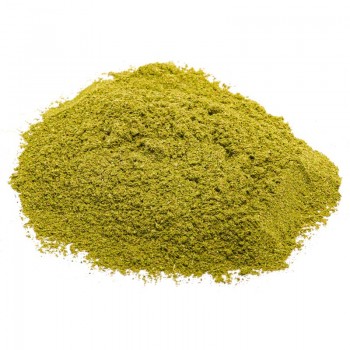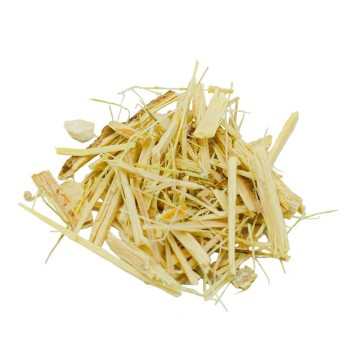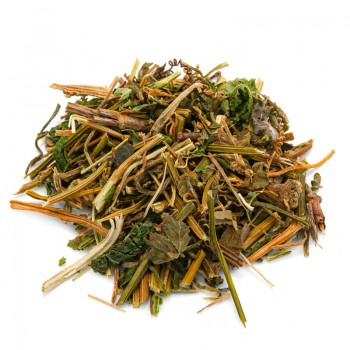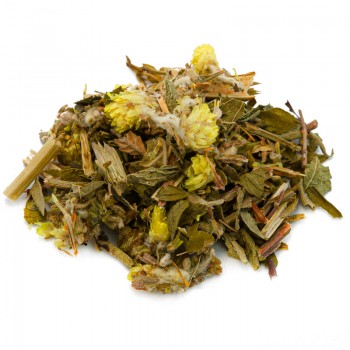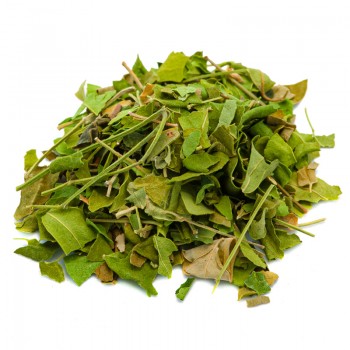Damiana herbal tea is very widespread in different parts of the world, due to its effects on our well-being. It makes an excellent infusion, known as Mexican tea, to sip both for its beneficial qualities and for its pleasant, even if slightly bitter, flavor.
Damiana leaves: properties and benefits
The version of Damiana in herbal tea leaves is useful for creating beneficial infusions for our body. This plant is known in phytotherapy as a tonic remedy against physical and mental tiredness, helping the body to fight nervousness and agitation.
The bioactivity of the leaves gives the body tonic and relaxing benefits at the same time, relieving stress and balancing mood. For this reason, Damiana herbal tea is considered a natural remedy to counteract states of fatigue, bad mood and exhaustion of psycho-physical strength. In cases of excessive work stress, Damiana can act as a tonic and neuromuscular stimulant. The elements that allow this action of Damiana are flavonoid antioxidants and phenolic compounds, also including caffeine. Furthermore, it contains a bitter principle with neurotonic properties, damianine, which acts on the nervous system with relaxing effects (central system) and benefits to revitalize and improve circulation (autonomic system).
Damiana leaves are also historically known for their properties useful for the regularity of intestinal transit, for a correct digestive function, slightly laxative.
Damiana also provides support against water retention, promoting the drainage of excess body fluids, diuresis and the well-being of urinary tract.
For these reasons, leaf tea is considered useful for alleviating gastrointestinal symptoms related to menstruation, such as cramps, and also represents a tonic support to counteract mood swings.
Origins and history of cultivation
Damiana is a woody shrub native to the American continent (Southern North America, Central America, the Caribbean and South America).
The shrub has been used by thousands of years in its various parts, in popular medicine, exploiting in particular Damiana leaves. They are the main part of the plant used for herbal remedies, as they contain the most pharmacologically active elements of this plant. The herbal use of this plant includes at least a dozen plants of the Turnera species, but the Turnera difficile Willd. ex Schult is the most widespread.
Historically, Damiana was also known as a plant aphrodisiac, as well as a treatment in folk medicine for gastrointestinal disorders, wet coughs (as an expectorant) and skin disorders. The aromatic leaves and stems were collected by the natives of Central and South America, including the Maya - who prepared a famous drink with Damiana leaves used as a tonic.
The pungent smell and flavor have made a highly appreciated cooking herb in some areas of Mexico, used for the production of liqueurs, in particular Triple Sec. Damiana leaves are collected and dried carefully after harvesting, always stored in a cool, dark place, before to use them for infusion.
<h2style="text-align: justify;">Plant and flowers
The best known of the approximately 135 species of Turnera, Turnera difficile Willd. ex Schult is part of the Passifloraceae family. It looks like a woody shrub with small yellow flowers followed by small fruits, with a sweet scent. The plant grows preferably on sloping, sunny and rocky terrain. It can reach up to approximately 2 meters in height, with light green leaves.
Nutritional values of Damiana - leaves
From a nutritional point of view, Turnera contains flavonoid compounds (apigenin), phenols, other antioxidants and substances such as damianine, phytosterols and essential oils (pinene, cineol, thymol). It also makes fatty acids, tannins and caffeine available.
How to use Damiana leaves in herbal tea
The infusion is obtained by placing approximately 3-5 grams of leaves in herbal tea cut, with water at 100 °C.
Leave it to infuse for 5 to 8 minutes before drinking the herbal tea. Add honey or sugar, if desired.
Damiana leaves: side effects and contraindications
If you intend to take Damiana, it is important to use the leaves in the recommended quantity to avoid side effects. In particular, you should not take Damiana during pregnancy or while breastfeeding, as it could affect hormone levels and cause potential pregnancy problems. For anemic people, this plant could have a negative impact on iron absorption, so it is best to consult a specialist before taking the herbal tea regularly. In the American continent, the Damiana leaf is used for smoking, but it can be harmful by causing anxiety and manic states, rather than functioning as a natural sedative.
![]()

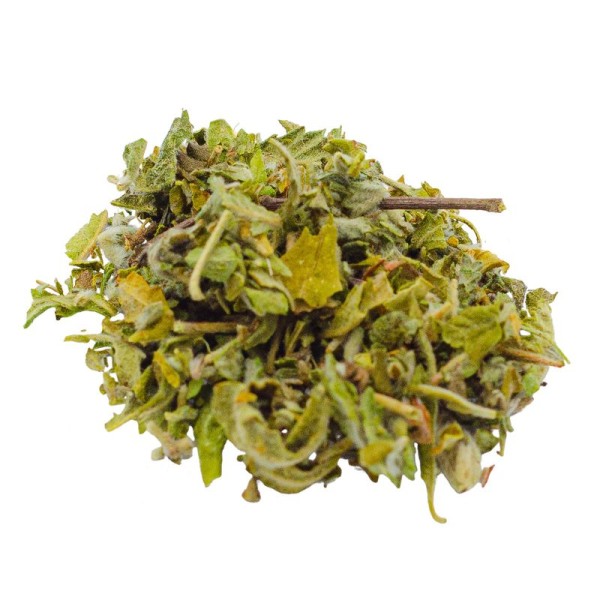









 No reward points for this product.
No reward points for this product.
